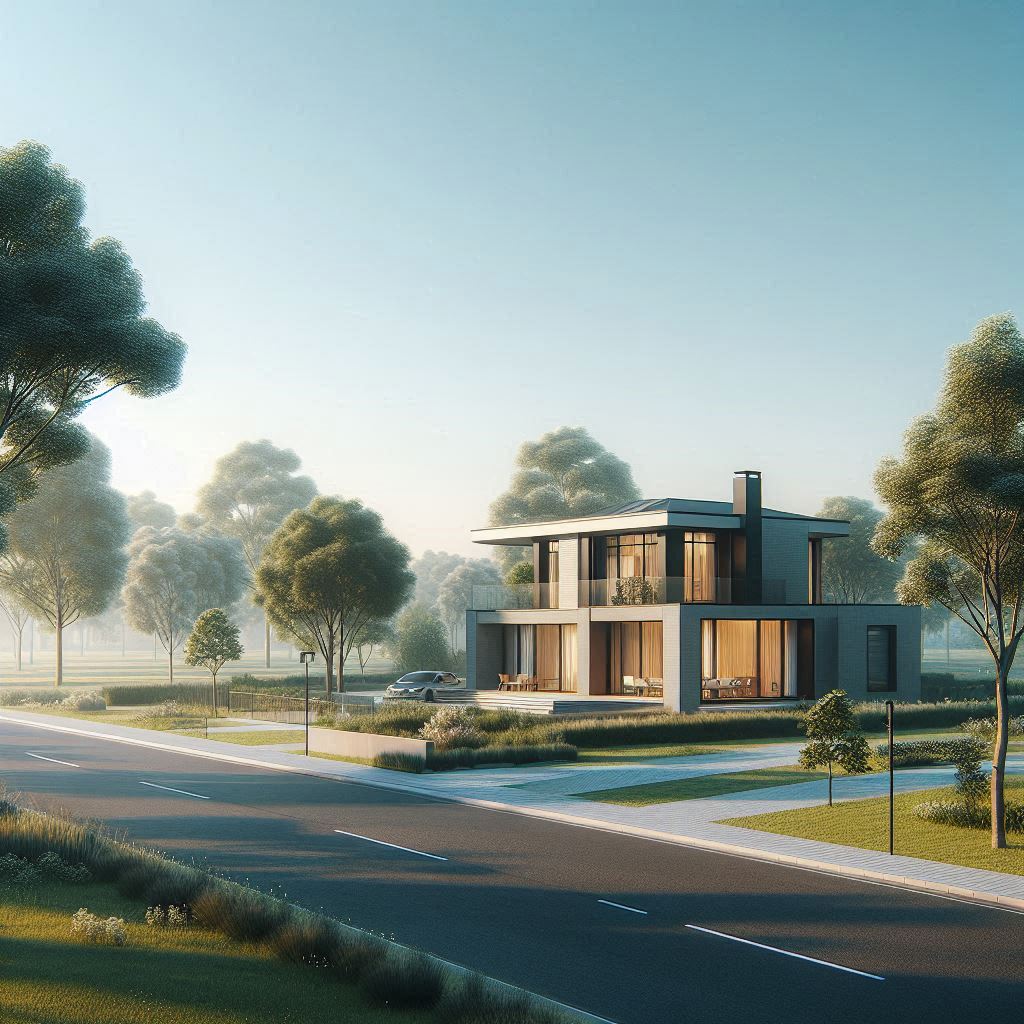
How to Choose the Perfect Location for Building a House
The location you choose for building your house sets the foundation for your future. It impacts your lifestyle, the property's value, and overall satisfaction. Whether you’re planning a serene countryside retreat or a bustling urban home, understanding what makes a location truly perfect is essential. In this comprehensive guide, we’ll explore everything you need to know to make the best choice.
Table of Contents
- Assess Your Lifestyle and Needs
- Research the Real Estate Market
- Evaluate Environmental and Climatic Factors
- Check Infrastructure and Utilities
- Consider the Neighborhood and Community
- Plan for Accessibility and Transportation
- Look for Legal and Zoning Compliance
- Test the Location for Everyday Comfort
- Conclusion: Your Path to the Perfect Location

1. Assess Your Lifestyle and Needs
The first step in selecting the perfect location is to evaluate your lifestyle. Do you crave quiet surroundings, or do you thrive in a lively neighborhood? Consider factors like work commute, proximity to schools, and the availability of amenities.
- Proximity to Essentials: Ensure your potential location offers easy access to schools, grocery stores, healthcare facilities, and transportation hubs.
- Safety and Security: Research the crime rates and overall safety of the area. A peaceful environment contributes to peace of mind.
- Future Growth Potential: Choose an area poised for development. Locations with planned infrastructure projects or new businesses often see property values rise over time.
2. Research the Real Estate Market
Understanding the local real estate market can help you make an informed decision. A location’s affordability, market trends, and resale potential can significantly impact your investment.
- Current Market Trends: Investigate how property prices have fluctuated over the past few years. Stable or rising prices typically indicate a desirable area.
- Affordability: Set a realistic budget for both the land and the housebuilding process. Factor in costs like property taxes and utility services.
- Long-Term Value: A good location will appreciate in value over time. Consult local real estate agents to understand growth potential.
3. Evaluate Environmental and Climatic Factors
The environment around your home plays a significant role in comfort and maintenance. Before finalizing your location, examine the area’s natural features and climate.
- Flood and Disaster Risks: Research whether the area is prone to flooding, earthquakes, or other natural disasters.
- Soil Quality and Drainage: Poor soil quality can lead to foundation problems. Ensure the land is suitable for construction.
- Climate Suitability: If you prefer sunny days or enjoy a cooler climate, pick a region that matches your preferences.
4. Check Infrastructure and Utilities
A housebuilding location should come with adequate infrastructure and essential utilities. Even the most picturesque site isn’t ideal if it lacks these fundamentals.
- Road Access: Ensure there are well-maintained roads leading to and from the property.
- Electricity, Water, and Internet: Verify the availability of basic utilities like electricity, clean water, and high-speed internet.
- Waste Management: Check for reliable waste disposal and sewage systems.
5. Consider the Neighborhood and Community
Your neighbors and community can significantly impact your experience living in the area. Look for places where you’ll feel comfortable and supported.
- Community Vibes: Visit the neighborhood to get a sense of the people and culture.
- Noise Levels: Check the area’s noise levels, especially if you’re sensitive to sound.
- Schools and Parks: Families should prioritize areas with good schools and safe parks.
6. Plan for Accessibility and Transportation
A location’s accessibility influences your daily convenience and the resale potential of your property.
- Public Transport Options: If you rely on buses, trains, or subways, choose a location near public transport.
- Commute Times: Calculate your commute to work or school.
- Airport and Highway Access: For frequent travelers, proximity to airports or major highways is essential.
7. Look for Legal and Zoning Compliance
Building a house isn’t just about picking the right spot; it’s also about ensuring compliance with legal and zoning regulations.
- Zoning Laws: Understand the area’s zoning requirements. These laws dictate the type of structures allowed.
- Building Permits: Research the process for obtaining building permits in the area.
- Property Rights: Confirm that the land title is clear and free from disputes.
8. Test the Location for Everyday Comfort
Before committing to a location, test how it feels during daily activities. Spend some time in the area at different times of the day and week.
- Traffic Patterns: Observe traffic flow during peak hours.
- Noise and Lighting: Check noise levels at night and the availability of street lighting.
- Walkability: Consider how walkable the area is. Nearby parks, cafes, or shops add convenience.
9. Conclusion: Your Path to the Perfect Location
Choosing the perfect location for housebuilding is a blend of practical analysis and emotional connection. From assessing lifestyle needs to understanding market trends, every step matters.
With the right location, your house becomes more than just a building—it becomes a home that perfectly suits your life. Start your journey today, and let your dream home take root in the perfect spot!